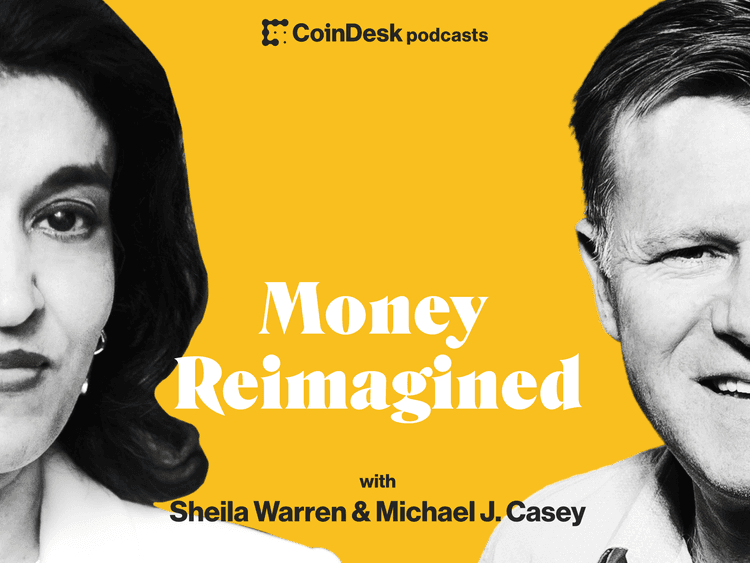What Ireland’s Ecosystem Success Story Means for Crypto
A common concern among regulators of cryptocurrencies is that a lack of international harmony across jurisdictions creates “regulatory arbitrage” for developers of what is a global, borderless 24/7 technology and market. In this week’s episode, we go to Ireland.
ABOUT
In this week’s episode, we go to Ireland.
“Money Reimagined” co-hosts Sheila Warren and Michael J. Casey are joined by Michael O’Sullivan, the author of “The Levelling,” which describes the post-globalization era, and Lory Kehoe, director, Digital Assets & Blockchain at BNY Mellon and the founder of Blockchain Ireland.
This episode is sponsored by Unique One Network.
The topic, nominally, is the Biden Administration's proposal to harmonize international tax rates and Ireland’s resistance to that.
What does this have to do with crypto? A lot, it turns out.
A common concern among regulators of cryptocurrencies is that a lack of international harmony across jurisdictions creates “regulatory arbitrage” for developers of what is a global, borderless 24/7 technology and market.
The idea, flagged by Securities and Exchange Commission Chairman Gary Gensler in his impactful speech this week, is that if there’s no consistency in rules around the world, crypto businesses will pick and choose where they base their operations and tend toward the most lax regulatory regime. Regulators like Gensler fear this fosters a race to the bottom, opening the door for criminals and the worst actors to find their way in.
Makes sense, right?
But there’s another side to the story about the policy variance around the world. That is, it allows smaller countries to find opportunities they might not otherwise have to attract international investors and to build their own vibrant domestic economies on the back of that.
As we learn from Sullivan and Kehoe, Ireland’s use of competitively low corporate tax rates had a sweeping impact on the Irish economy that went far beyond multinationals setting up headquarters there. It was the spark that generated a vibrant ecosystem of innovation, a holistic growth machine that continues to underpin Ireland’s decades-long economic expansion.
With many in Ireland looking to create a crypto-friendly regulatory framework to encourage innovation in digital assets and fintech, that experience poses real questions about how far governments should go toward harmonizing their rules.
Image credit: Lucas Bischoff/iStock/Getty Images Plus, modified by CoinDesk
Updated headline Aug. 10, 2021
HOSTS
Michael J. Casey is Chairman of The Decentralized AI Society, former Chief Content Officer at CoinDesk and co-author of Our Biggest Fight: Reclaiming Liberty, Humanity, and Dignity in the Digital Age. Previously, Casey was the CEO of Streambed Media, a company he cofounded to develop provenance data for digital content. He was also a senior advisor at MIT Media Labs's Digital Currency Initiative and a senior lecturer at MIT Sloan School of Management. Prior to joining MIT, Casey spent 18 years at The Wall Street Journal, where his last position was as a senior columnist covering global economic affairs.
Casey has authored five books, including "The Age of Cryptocurrency: How Bitcoin and Digital Money are Challenging the Global Economic Order" and "The Truth Machine: The Blockchain and the Future of Everything," both co-authored with Paul Vigna.
Upon joining CoinDesk full time, Casey resigned from a variety of paid advisory positions. He maintains unpaid posts as an advisor to not-for-profit organizations, including MIT Media Lab's Digital Currency Initiative and The Deep Trust Alliance. He is a shareholder and non-executive chairman of Streambed Media.
Casey owns bitcoin.

EPISODES
Crypto's Future of Policy, Politics, and the Fight for a Pro-Crypto Government
Messari’s Ryan Selkis from Bitcoin to crypto policy.
Jun 14, 2024
Embracing Nuance and Logic | The Diverse Community of Crypto
Post-Consensus 2024 reflections and examining the crypto industry and the implications of the U.S. Presidential elect...
Jun 5, 2024
‘Tokenization Is the Future of Real Assets.’
Max Boonen, CEO, and Co-Founder PV01, shares the advancements in technology and the war over regulation for tokenizat...
May 22, 2024
Future-Proofing Finance: MICA, Crypto Disclosure, and Global Regulatory Challenges
Bluprynt CEO and Georgetown Law Professor, Christopher J Brummer highlights the crucial need for financial disclosure...
May 18, 2024

The Mining Pod
Feb 10, 2025

CoinDesk Podcast Network
The top stories and best shows in the blockchain world, delivered daily from the team at CoinDesk.
Dec 20, 2023

Markets Daily Crypto Roundup
Tune in as CoinDesk runs down daily action in bitcoin markets and some of the most important recent industry development.
Dec 19, 2023

Unchained
Unchained, your no hype resource for all things crypto by former Forbes senior editor Laura Shin, author of The Cryptopians.
Dec 18, 2023

